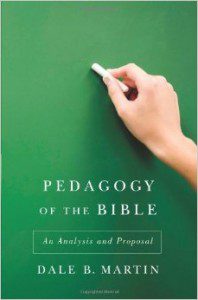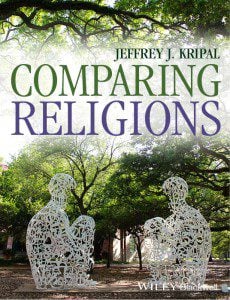I’ve been following some of the controversy over Rob Bell’s not-yet-even-published book Love Wins: A Book About Heaven, Hell, and the Fate of Every Person Who Ever Lived, which is poised to drop on March 15. As you may be able to guess from the title, a large part of the controversy is about whether Bell is espousing some form of the theological doctrine known as “Universalism”: that every person (universally!) is, in the long run, saved. In short, God’s “love wins” over everything: any shortcoming, any sin, any imperfection. To preview the book’s content, you can view a short clip from the publisher HarperCollins, whose staff and shareholders have to be loving the pre-release controversy as better than any publicity they could buy.
From what I can tell — not having yet read the book — Rob Bell is making a number of important moves that I respect. First, he introduces cognitive dissonance: for conservative, orthodox Christians who may presume that all non-Christians go to hell for all eternity, Bell is asking questions such as, “Is Gandhi in hell?” Second, he acknowledges the limits of human knowledge: for Christians who think that even Gandhi is destined for eternal hellfire, he asks, “You know that for sure?” Finally, he asks the “question behind the question” about the nature of the God revealed in the life of Jesus — inviting us to consider the good news that if God is love, then God’s love wins in the end for everyone universally.
Perhaps I am reading too much into what little I know about this book, but my (admittedly biased) hope is that Rob Bell is espousing some form of Christian universalism, and I will celebrate however far Bell is able to travel down the road toward an inclusive universalism. Bell is one of the handful of Christian preachers whose sermons I regularly podcast; he’s a tremendously gifted and creative (and also quirky) communicator. I also regularly listen to the sermons of Debbie Blue, a founding minister of House of Mercy in St. Paul, Minnesota, and Sara Miles at St. Gregory’s Episcopal Church in San Francisco. (If you have suggestions of other preachers of their caliber whom I should be podcasting, please share in the comments section, although I will confess to having a bias toward the sermons of progressive female preachers. It also helps that all three of the preachers I mentioned do not preach every Sunday.)
To return my focus to the book in question, I cannot listen to the debate over the extent of Rob Bell’s universalism without being reminded of the deep history behind the theological doctrine of universalism from the controversial early Church Father Origen of Alexandria (c. 185–254) to the history behind the formation of the present-day Unitarian-Universalist Association of Congregations, whose very name denotes their commitment to a thoroughgoing Universalist theology. Indeed, for some of Rob Bell’s critics, the Unitarian-Universalists represent the end of the slippery slope that they fear Rob is sliding down. And the controversy of Bell’s book gave me an excuse to freshly remind myself of the seven principles which Unitarian Universalist congregations affirm and promote:
- The inherent worth and dignity of every person;
- Justice, equity and compassion in human relations;
- Acceptance of one another and encouragement to spiritual growth in our congregations;
- A free and responsible search for truth and meaning;
- The right of conscience and the use of the democratic process within our congregations and in society at large;
- The goal of world community with peace, liberty, and justice for all;
- Respect for the interdependent web of all existence of which we are a part.
The Unitarian Universalism website adds that the UU movement draws from many sources:
- Direct experience of that transcending mystery and wonder, affirmed in all cultures, which moves us to a renewal of the spirit and an openness to the forces which create and uphold life;
- Words and deeds of prophetic women and men which challenge us to confront powers and structures of evil with justice, compassion, and the transforming power of love;
- Wisdom from the world’s religions which inspires us in our ethical and spiritual life;
- Jewish and Christian teachings which call us to respond to God’s love by loving our neighbors as ourselves;
- Humanist teachings which counsel us to heed the guidance of reason and the results of science, and warn us against idolatries of the mind and spirit;
- Spiritual teachings of earth-centered traditions which celebrate the sacred circle of life and instruct us to live in harmony with the rhythms of nature.
If the above “universalism” is the boogey-monster that Rob Bell’s critics are so afraid of, then I say, “Bring it on!” I hope Rob Bell is a Universalist!
















